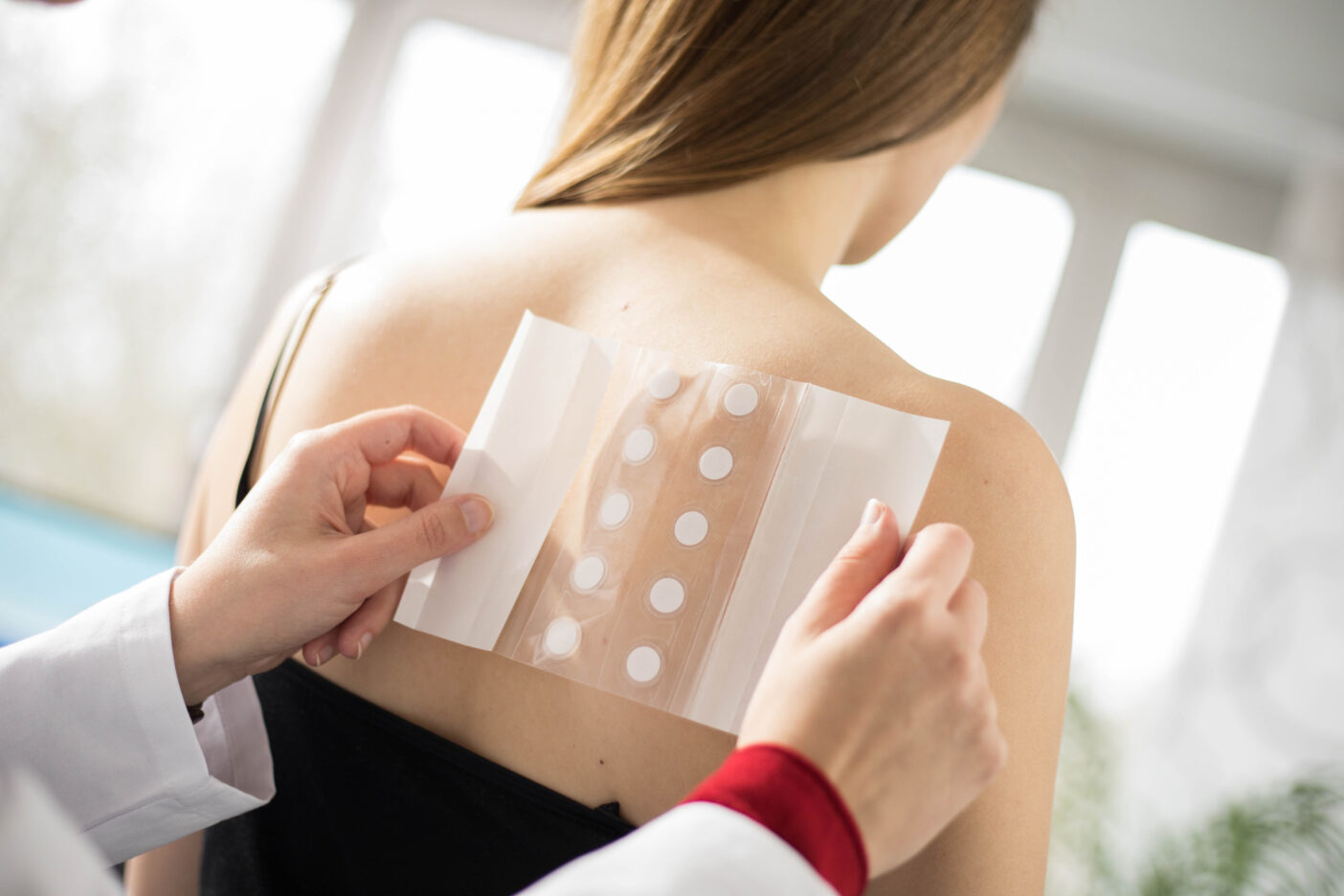Dermatological skin compatibility: Why it is so important

In the cosmetics industry, dermatological skin compatibility is a decisive criterion for the safety and trustworthiness of a product. However, according to the current cosmetics regulation, testing for dermatological skin compatibility is not mandatory – this means that anyone can sell cosmetic products without having tested them for skin reactions. At Cosmacon, however, dermatological skin compatibility has the highest priority: we guarantee our customers excellent skin compatibility, tested on sensitive skin!
Testing of dermatological skin compatibility by the independent test institute Dermatest GmbH
We at Cosmacon trust the independent test institute Dermatest as our partner for testing the skin compatibility of products. The test is carried out using a standardised epicutaneous test:
– Product testing and release as part of a risk analysis
– At least 30 test subjects take part in the test series
– Intensified test conditions compared to subsequent use
– 24-hour occlusive application with a plaster
– Dermatological assessment of the skin condition at three points in time (24, 48 and 72 hours after application)
– Distinguishing between irritant and allergic reactions
The highest quality criteria for dermatological studies
When it comes to dermatological testing, Dermatest and Cosmacon set the highest quality standards, which go far beyond those customary in the industry. In contrast to group-affiliated test institutes, Dermatest GmbH offers not only meaningful but also flexible studies that can be individually adapted to product requirements.
The test procedure is based on DIN EN ISO 10993-23:2021 (Section 8 and Annex E: Irritation testing of medical devices on human skin).
The most important features are
– At least 30 test subjects
– Three standardised measurement points
– Testing under dermatological supervision
– Positive and negative controls for clear assessment
The Dermatest seal: Safety and trust for consumers
After successful testing, our customers are allowed to use the globally recognised ‘Dermatest seal’. This seal offers consumers reliable orientation and indicates at a glance that dermatological safety has been tested.
Since there are no standardised specifications for the test conditions worldwide, the industry often cuts corners to save costs – whether it’s through fewer test subjects, shorter test times or less dermatological control. Cosmacon and Dermatest, on the other hand, focus on transparency and quality to ensure the dermatological skin compatibility of our products at the highest level.

Conclusion: dermatological skin compatibility is a must!
Even if dermatological skin compatibility testing is not legally required, it should be a matter of course for manufacturers of skin care products. Products must be safe. Tested products strengthen trust in brands and their efficacy claims. At Cosmacon, we place the greatest value on dermatological safety – for high-quality products that meet the highest dermatological requirements.